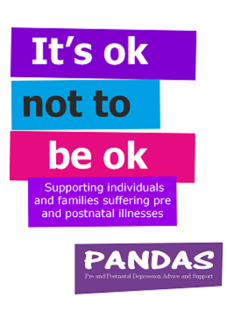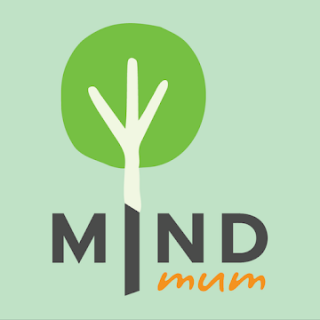Post Natal Depression may be increasing during the COVID 19 pandemic.
According to NHS statistics, Post Natal Depression affects more than 1 in every 10 women within a year of giving birth. Being alert to postnatal depression can be very problematic especially when it can be hidden by the natural tiredness of new motherhood, or tied up with feelings of guilt and shame. With people now returning back to work from lockdown, loneliness and stress can add to the everyday burdens, and being alert to Mental Health is more important than ever.
BBC journalist Claire Graham recently opened up in her struggle with post-natal depression saying "When my new baby was set on my chest I felt nothing".
Severe depression following the birth of your baby can affect how you feel about your baby in the long term. You may feel it's difficult to work out your baby's needs and feelings at this time, and feel guilty that you don't feel the way you expected or you may resent the baby for the way you feel.
New research has found that depression among expectant and new mothers has almost tripled during the Corona Virus pandemic. Around one in seven pregnant women and those who have recently given birth have been struggling with postnatal depression.
Annie Belasco, head of charity at the PANDAS Foundation says that "while Covid19 and lockdown do not "cause" postnatal depression, the circumstances and additional stress resulting from them could certainly contribute. Parents are feeling isolated and lonely; stretched physically and mentally".
Typically mothers spend up to 164 hours a week providing care to infants, only really having "me time" for about 30 minutes a day. Before Coronavirus, the NHS encouraged parents to attend peer to peer support and take much needed physical help that may be on offer from family and friends. However, these services are greatly reduced now, and being cut off from friends and family during lockdown can heighten feelings of isolation.
The COVID-19 restrictions can worsen depression and decrease access to family, friends, and health professionals. Spending time in lockdown or obeying social distancing rules can lead to greater possibilities of arguments with older children and partners, this interferes with Mums adapting to life with their new baby. Keeping in contact with your workplace and retaining that important social connection may not happen, this can lead to future confidence issues when returning to work.
During the first few days after they have had a baby most Mothers experience, mood swings, tears, anxiety, and exhaustion. These 'baby blues' affect around 70% of women, with most women saying they felt much more like themselves within a few hours or days. However, some women may experience more severe mood changes. Signs of postnatal depression may include: feeling low most days, lack of interest or pleasure in normal activities, loss of appetite, difficulty sleeping, irritability, and anxiety. Some new Mums may find it difficult to look after themselves and their baby.
Dr. Margie Davenport, of the University of Alberta in Canada says the effects of postnatal depression can reduce the very important mother-baby bonding and lead to developmental delays in infants.
IF YOU'RE WORRIED:
Be honest with yourself around how you are feeling and thinking, it's okay to share your feelings with people you love and trust. You may be surprised how much support you get from your friends and work colleagues.
If you are concerned that you may have postnatal depression, the most important thing to do is to reach out for professional help. This is where you can confide if you are experiencing a difficult relationship with your baby, it's good to remember it's the depression that is affecting the relationship, not you. Your GP can offer advice and treatment that will help you establish a loving long term relationship.
In addition to professional help such as your GP, the company you work for can also help. Many want to help their workforce cope better if your mental health becomes poor, they really want to retain healthily, focused and happy staff. They may have systems in place within their business structure and network to help you.
USEFUL TIPS FOR SELF HELP:
Engage in lots of baby cuddles - Holding and stroking babies has been found to decrease the risk of postpartum depression.
Limit your media intake - Make use of reliable information sources that do not sensationalise the news. If you are finding social media overwhelming take a break, delete the apps from your phone they can always be reinstalled later.
Recognise that it is healthy to feel stress - It is okay to feel your feelings. Avoiding or dismissing them will only make it worse, look at using a worry window coping strategy.
Improve your sleep - Although it can be difficult, try to establish early bedtime rituals to relax and develop a sense of routine and calm. Try to prioritise sleep, and nap or rest when your child naps.
Perhaps most important of all, keep in mind that postpartum depression does improve and is treatable, and the Covid19 crisis will pass.
USEFUL ONLINE RESOURCES:
There's a range of helpful online resources to support women with postpartum depression. Several provide support via telephone or text, and apps.
A few apps we like are Peanut, MindMum, and Lifeline4Moms, these offer advice and social networking for mothers and may be of assistance to women who are struggling.
It's important to keep all your appointments with midwives, health visitors, doctors, or mental health support, although some extra precautions may need to take place. The Royal College of Midwives website has a list of FAQs that you may find useful.
Join PANDAS social media channels via Instagram (they have regular lives with special guests and motivational posts) and Facebook for uplifting, accurate and supportive information and content, that will motivate you each day to keep going!
You can also visit the MIND Community for a safe space to talk and share your thoughts and experiences.or get in touch with the Association for Post Natal Illness (APNI) on 0207 386 0868 or by using the live chatbox on their website (both manned Monday - Friday, 10 am - 2 pm).
Comments
By accepting you will be accessing a service provided by a third-party external to https://www.flashinglightbulb.co.uk/



